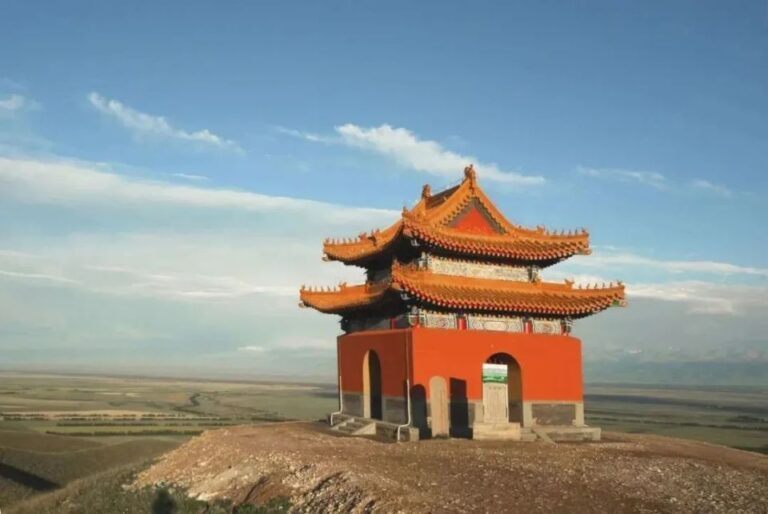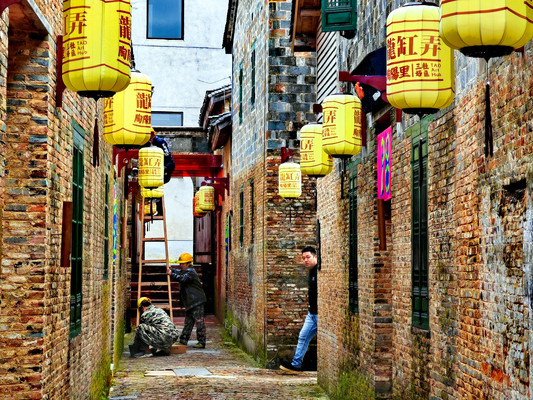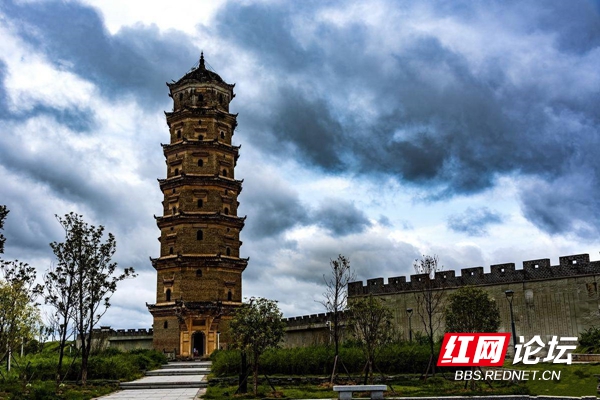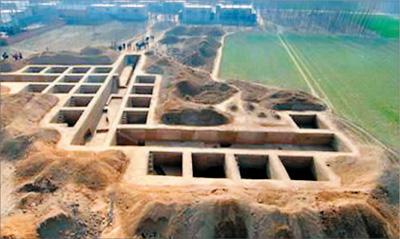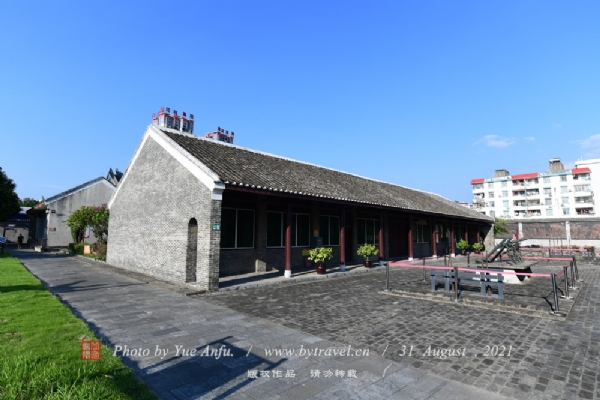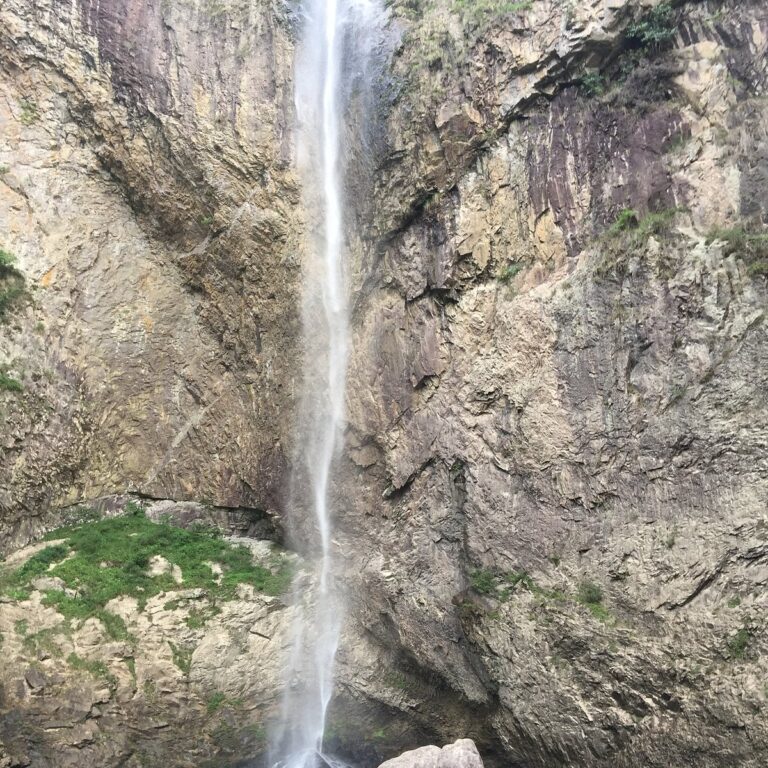A Journey Through Time: The Cultural Significance of Luzhou Luxian Yuantongsi
An Essential Guide to Visiting Luzhou Luxian Yuantongsi
In This Guide
- An Essential Guide to Visiting Luzhou Luxian Yuantongsi
- The Rich History of Luzhou Luxian Yuantongsi
- Main Highlights: What to See at Luzhou Luxian Yuantongsi
- Planning Your Visit: A Practical Guide
- Tickets, Hours, and Booking
- How to Get There
- Local Cuisine and Accommodation
- Frequently Asked Questions
- Final Thoughts on Your Trip
Nestled amidst the picturesque landscapes of Luzhou, Sichuan, the Yuantong Temple (圆通寺) beckons visitors with its serene beauty and rich historical significance. This ancient temple, established in 1506 during the Ming Dynasty, stands as a testament to the artistry and spirituality that flourished in the region over the centuries. Situated just a couple of kilometers from the quaint town of Yushi, Yuantong Temple is not only a national key cultural relic but also a cherished site for both pilgrims and tourists alike.
As you approach the temple, the inviting ambiance of the surrounding forest provides a perfect backdrop for reflection and tranquility. The temple’s name, which translates to “Temple of Enlightenment,” reflects its role as a center of Buddhist learning and meditation. Visitors are greeted by impressive stone carvings and intricate architectural details, including a striking inscription from the Wanli period, which enhances the temple’s historical allure.
Yuantong Temple is more than just a religious site; it embodies the cultural heart of Luzhou, where traditional Chinese architecture meets the natural beauty of the Sichuan basin. Whether you are seeking spiritual solace, a glimpse into ancient craftsmanship, or simply a peaceful retreat into nature, Yuantong Temple offers a unique experience that resonates with the essence of Chinese heritage. Join us as we explore the magnificence of this hidden gem, uncovering the stories etched in stone and the serenity that envelops this sacred space.
The Rich History of Luzhou Luxian Yuantongsi
Luzhou Luxian Yuantongsi, also known as the Yuantong Temple, boasts a rich historical tapestry that dates back to the Ming Dynasty. Established in 1506 during the reign of the Zhengde Emperor, the temple is nestled within a verdant mountainous area, approximately two kilometers from the town of Yushi. It has undergone several renovations throughout the centuries, particularly during the Wanli period of the Ming Dynasty, the Guangxu period of the Qing Dynasty, and into the early 21st century, reflecting the ongoing reverence and dedication to preserving this cultural gem.
The temple serves as a significant site in the Buddhist landscape of southern Sichuan. It was renowned as a prominent Buddhist sanctuary, attracting pilgrims and scholars alike. The grandeur of Yuantong Temple is not only evident in its architectural beauty but also in the inscriptions left by historical figures. Among these is a notable inscription penned by Ruan Shihang, a governor of Luzhou during the Wanli era, which graces the temple’s main gate, proclaiming “Yuantong Zen Forest” (圆通禅林).
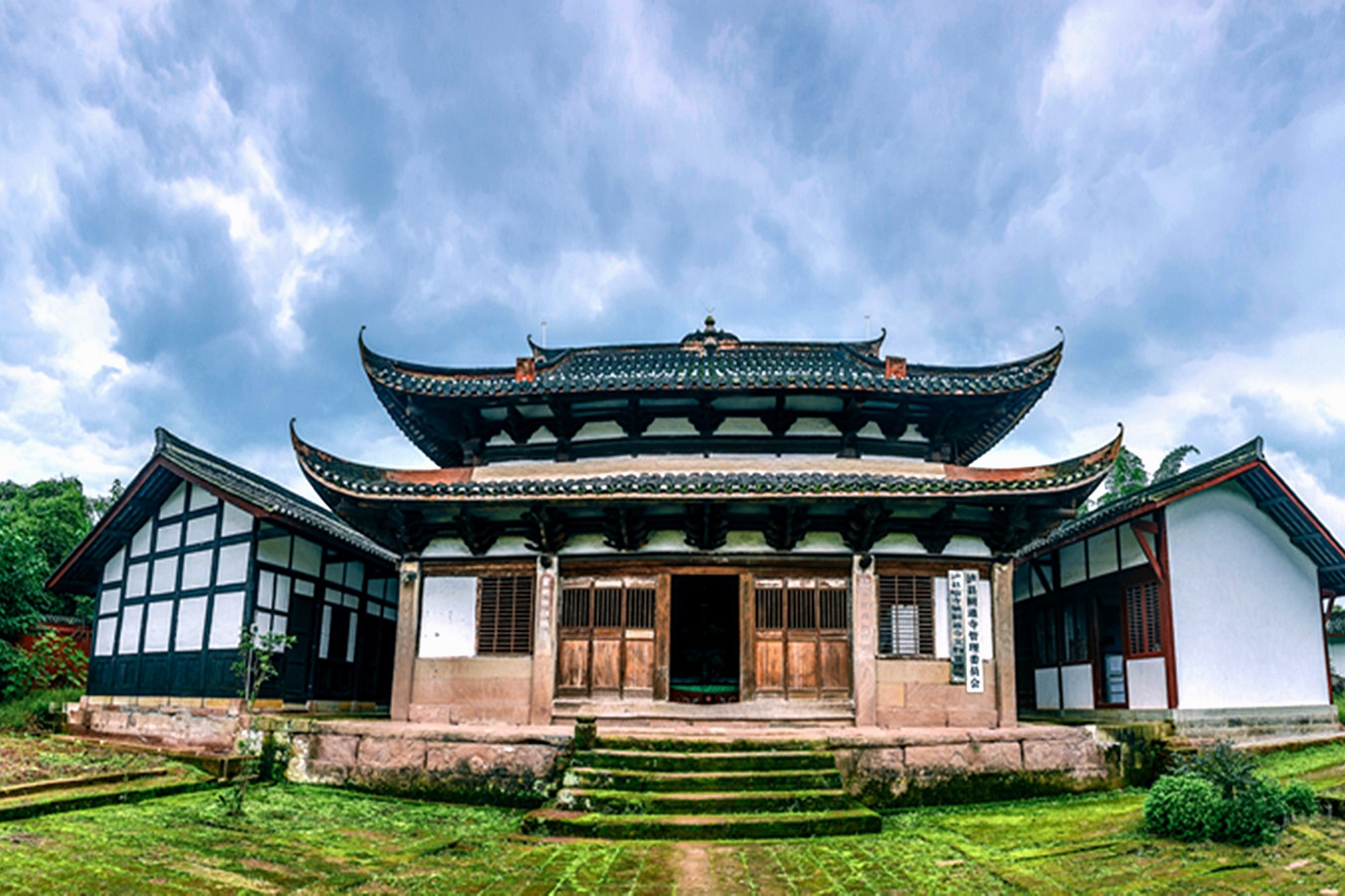
Luzhou Luxian Yuantongsi.
Throughout its history, Yuantong Temple has been a witness to the evolving spiritual and cultural life in the region. The temple complex is home to over 400 exquisite rock carvings, many of which date back to the Ming Dynasty. These include intricate depictions of Buddhist deities and scenes, with the most famous being the Avalokiteshvara, or the Thousand-Handed Guanyin, showcasing the exceptional craftsmanship of ancient artisans.
The temple’s significance extends beyond its religious functions; it has long been a center for learning and artistic expression. During the Song Dynasty, the area was frequented by poets and scholars, including the celebrated poet Huang Tingjian, who found inspiration in the temple’s serene environment. The cultural legacy of Yuantong Temple is further enhanced by its surrounding natural beauty and the historical sites nearby, making it a vital part of Luzhou’s heritage.
In modern times, the Yuantong Temple continues to be a focal point for visitors and devotees, symbolizing the resilience of Buddhist culture in an ever-changing world. Its storied past and ongoing significance make it a remarkable destination for those wishing to explore the profound historical layers of Sichuan.
Main Highlights: What to See at Luzhou Luxian Yuantongsi
Luzhou Luxian Yuantongsi (圆通寺) is a hidden gem nestled in the tranquil mountains just a couple of kilometers from Yushi Town. This ancient temple, founded in 1506 during the Ming Dynasty, stands as a testament to centuries of cultural and spiritual heritage. As you approach the temple, the serene atmosphere envelops you, making it a peaceful retreat from the hustle and bustle of modern life.
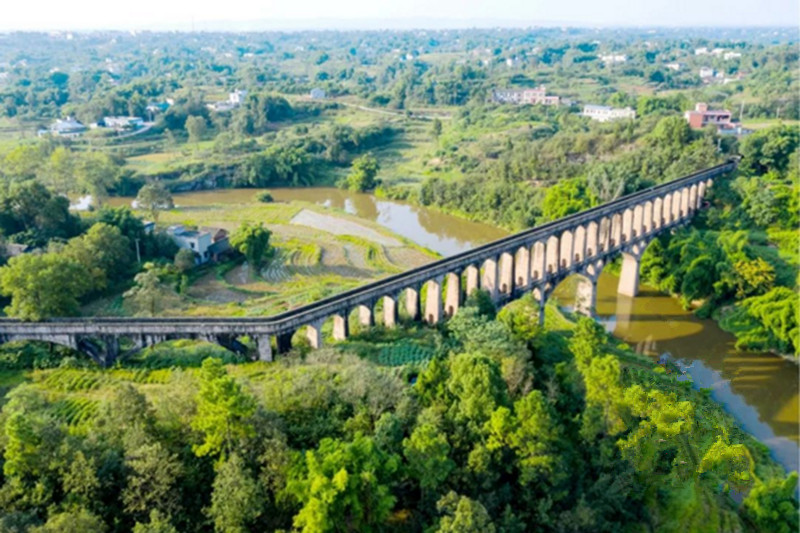
Luzhou Luxian Yuantongsi.
One of the temple’s most striking features is its intricate architecture, adorned with detailed carvings and inscriptions that reflect the artistry of its time. The entrance gate, inscribed with “Yuantong Zen Forest,” is a notable highlight, penned by the esteemed governor of Luzhou during the Wanli period. Visitors are often captivated by the harmony between the temple structures and the natural surroundings, which create a serene environment ideal for reflection and meditation.
As you explore the temple grounds, you’ll encounter a collection of exquisite sculptures, including the remarkable cliffside stone carvings that date back to the Ming Dynasty. These carvings depict various Buddhist figures and narratives, showcasing the craftsmanship and devotion of the artisans who created them. The most famous among them is the “Thousand-Handed Avalokiteshvara,” a breathtaking representation of compassion and mercy.
Not only is Yuantongsi a place of historical significance, but it also offers breathtaking views of the surrounding landscapes, making it a perfect spot for photography enthusiasts and nature lovers alike. The lush greenery and majestic mountains that frame the temple amplify its charm, inviting guests to immerse themselves in the beauty of Sichuan’s natural environment.
For those seeking a deeper understanding of the region’s Buddhist heritage, Yuantongsi provides an excellent opportunity to learn about local practices and rituals. The temple often hosts cultural events and ceremonies that allow visitors to engage with the spiritual community and experience the rich traditions of Buddhism in China.
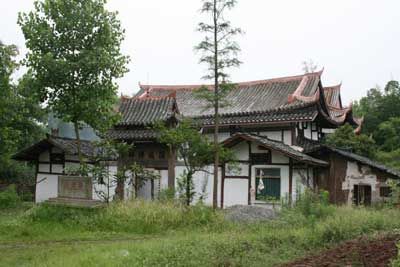
Luzhou Luxian Yuantongsi.
In summary, a visit to Luzhou Luxian Yuantongsi is not just a journey to an ancient temple but an exploration of culture, history, and natural beauty. Whether you seek spiritual solace, artistic inspiration, or simply a peaceful escape, this temple is a must-visit destination in Sichuan Province.
Planning Your Visit: A Practical Guide
Practical Guide to Visiting Luzhou Luxian Yuantongsi (泸县圆通寺)
Nestled in the scenic mountains surrounding Luzhou, Luzhou Luxian Yuantongsi (Round-Trip Temple) is a gem that offers visitors a glimpse into the serene beauty of Buddhist architecture and rich cultural history. If you’re planning a visit, here’s everything you need to know to make the most of your trip.
Getting There
Location: Yuantongsi is located approximately 2 kilometers from Yushi Town in Luxian County, which is part of Luzhou City in Sichuan Province. The temple is easily accessible by various modes of transportation.
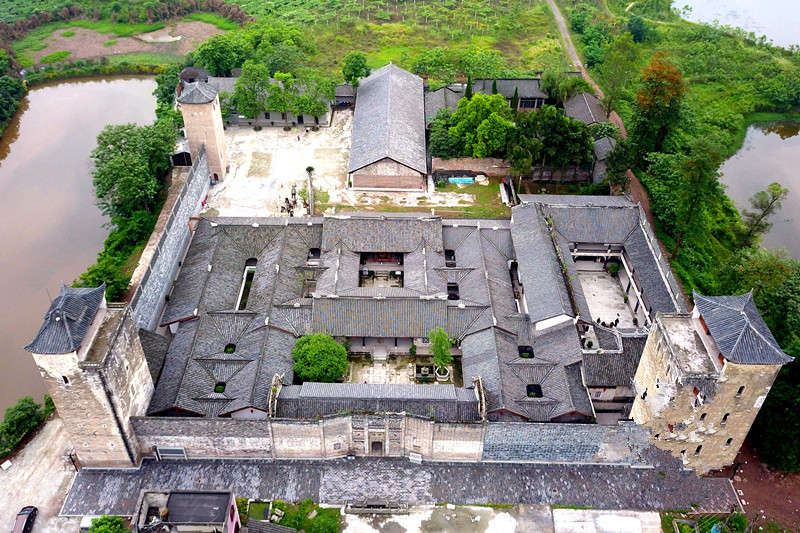
Luzhou Luxian Yuantongsi.
- By Car: If you’re driving, you can navigate directly to the temple using GPS. The roads are well-marked, and there is ample parking available at the site.
- Public Transport: Local buses and taxis are available from Luzhou city center. Riding a bus will give you a taste of local life and the beautiful countryside.
Entrance Fees and Operating Hours
- Admission Fee: The temple typically charges a small entrance fee, so be sure to carry some cash.
- Opening Hours: Yuantongsi is open daily from 9:00 AM to 5:00 PM. It’s advisable to visit during the early hours to enjoy a quieter experience.
What to See
Yuantongsi is renowned not only for its tranquil atmosphere but also for its historical significance:
- Architectural Highlights:
- The temple was founded in 1506 during the Ming Dynasty and showcases classical Buddhist architecture. The main hall, adorned with intricate carvings and a serene statue of the Buddha, is a must-see.
-
Don’t miss the stone inscriptions by famous poets and scholars, which add a literary charm to the site.
-
Cultural Significance:
-
Yuantongsi is recognized as a national key cultural relic protection unit. Its historical importance makes it a valuable stop for those interested in Buddhism and Chinese history.
-
Natural Beauty:
- The temple is surrounded by lush forests and mountains, ideal for a leisurely hike or a peaceful stroll. Take your time to explore the beautiful scenery and enjoy the meditative environment.
Tips for Visitors
- Dress Appropriately: As a place of worship, it’s advisable to dress modestly. Comfortable walking shoes are recommended, as you may want to explore the surrounding areas.
- Respect Local Customs: Be mindful of the religious practices taking place at the temple. Observe silence in sacred areas, and avoid taking photographs where it may be prohibited.
- Stay Hydrated: Bring water, especially if you plan on hiking or walking around the temple grounds. There are limited facilities, so prepare accordingly.
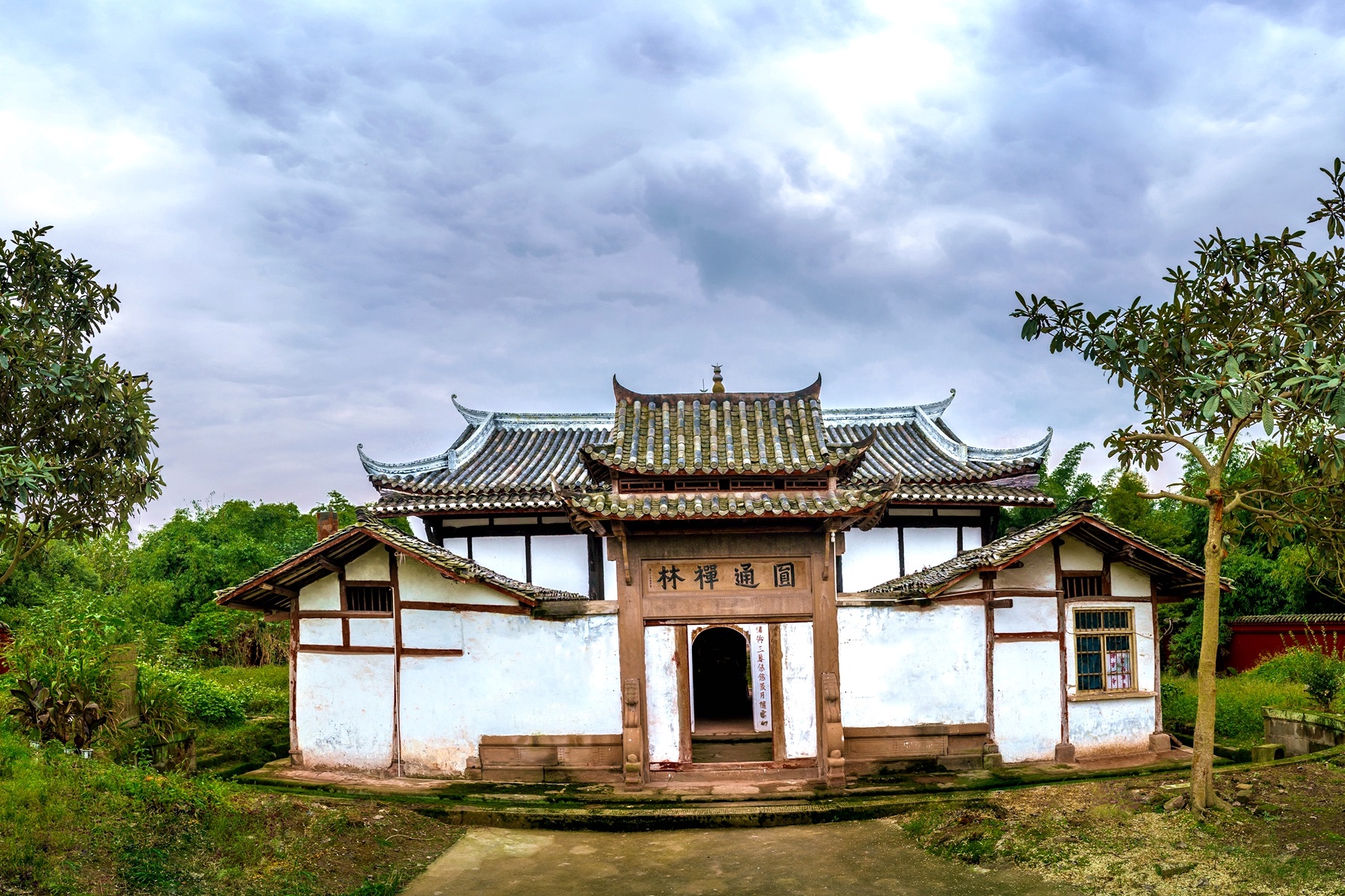
Luzhou Luxian Yuantongsi.
Nearby Attractions
If you have extra time, consider exploring other attractions near Yuantongsi:
- Yuqing Mountain Scenic Area: A short drive away, this area offers picturesque views and additional hiking opportunities.
- Luzhou Old Town: Experience traditional Chinese architecture and local cuisine in this vibrant historic area of Luzhou.
Food and Accommodation
- Dining Options: While there are limited dining options directly at the temple, local eateries offer delicious Sichuan cuisine nearby. Try the famous Luzhou Laojiao liquor if you’re a fan of local spirits.
- Places to Stay: Luxian County has a range of accommodations from budget hostels to more comfortable hotels. Consider booking in advance, especially during peak tourist seasons.
Visiting Luzhou Luxian Yuantongsi is not just a chance to witness stunning architecture; it’s an opportunity to immerse yourself in the tranquility and rich history of this remarkable site. Enjoy your journey into the heart of Sichuan’s spiritual heritage!
Tickets, Hours, and Booking
When planning your visit to Luzhou Luxian Yuantongsi (Roundthrough Temple), it’s essential to know the ticketing details to ensure a smooth experience.
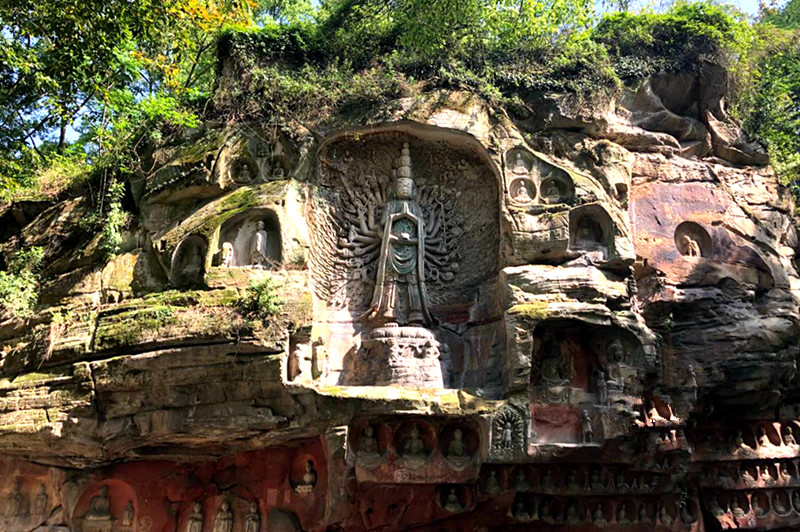
Luzhou Luxian Yuantongsi.
Ticket Information:
-
Admission Fee: The entrance fee to Yuantongsi is approximately 20 RMB per person. This nominal charge grants access to the temple grounds and its stunning surroundings, including various historical stone carvings.
-
Operating Hours: The temple is open from 9:00 AM to 5:00 PM daily, allowing ample time for exploration and appreciation of its rich history and serene ambiance.
-
Discounts: Be sure to check for any available discounts or special offers, especially if you’re traveling in a group or are a student. Typically, local tourism websites or the official site of Yuantongsi can provide up-to-date promotional information.
-
Payment Methods: It’s advisable to carry cash, as electronic payment options may not be available at the site. However, in larger cities, mobile payment apps like WeChat Pay or Alipay are commonly accepted, so it’s worth checking if you can use them.
-
Parking: If you’re driving, note that parking is available near the entrance, making it convenient for visitors arriving by car.
For a truly enriching experience, consider planning your visit during the early morning or late afternoon when the temple is less crowded, allowing for a more peaceful exploration of this historic site. Enjoy your trip!
How to Get There
Getting to Luzhou Luxian Yuantongsi (泸县圆通寺) can be an adventurous and enjoyable experience, thanks to the variety of transportation options available in the region. Here’s a detailed guide to help you navigate your way to this historical temple nestled in the scenic hills of Luzhou County.
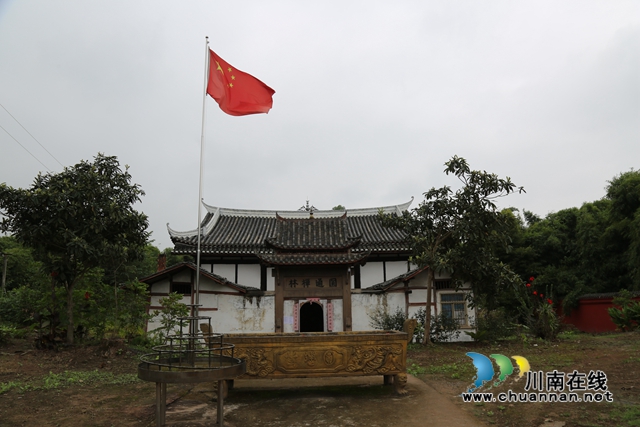
Luzhou Luxian Yuantongsi.
By Air
The nearest airport is Luzhou Yunlong Airport (LZO), located approximately 30 kilometers from the temple. This airport connects Luzhou to major cities in China such as Chengdu and Shanghai. From the airport, you can take a taxi or arrange for a hotel shuttle service to reach the temple.
By Train
Luzhou County is well-connected by rail. The Luzhou Railway Station offers high-speed train services from Chengdu, which is about 200 kilometers away. The journey takes around 1.5 to 2 hours, making it a convenient option for travelers. Once you arrive at Luzhou Railway Station, you can take a taxi or use a ride-hailing app to get to Yuantongsi, which is approximately 30 kilometers away and will take around 40 minutes by car.
By Bus
For those on a budget, long-distance buses are available from various city centers, including Chengdu. The bus journey may take about three to four hours, depending on traffic conditions. Buses typically arrive at the Luzhou Long-distance Bus Station, where you can transfer to a local taxi or bus to reach the temple.
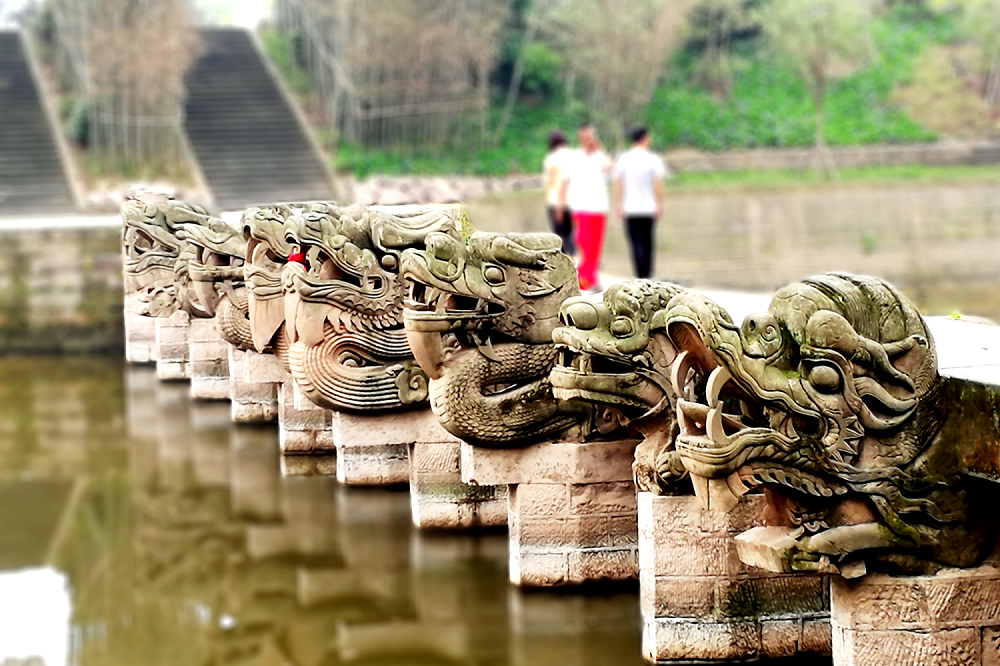
Luzhou Luxian Yuantongsi.
Within Luzhou County
Once you’re in Luzhou County, local transportation options include:
– Taxis: Easily available and relatively inexpensive, taxis can take you directly to Yuantongsi.
– Ride-Hailing Services: Apps like Didi are popular and can be a convenient way to get around.
– Bicycles: For the more adventurous, renting a bicycle can be a delightful way to explore the beautiful landscapes surrounding the temple.
Recommended Route
If you’re traveling from Chengdu:
1. Take a high-speed train to Luzhou Railway Station.
2. From the station, hire a taxi directly to Yuantongsi, enjoying the scenic views along the way.
Tips for Travelers
- Plan Ahead: Check train and flight schedules in advance to ensure smooth connections.
- Language: While many drivers may not speak English, using translation apps can help bridge the communication gap.
- Peak Times: Be mindful of peak travel times, especially during public holidays when transportation can be crowded.
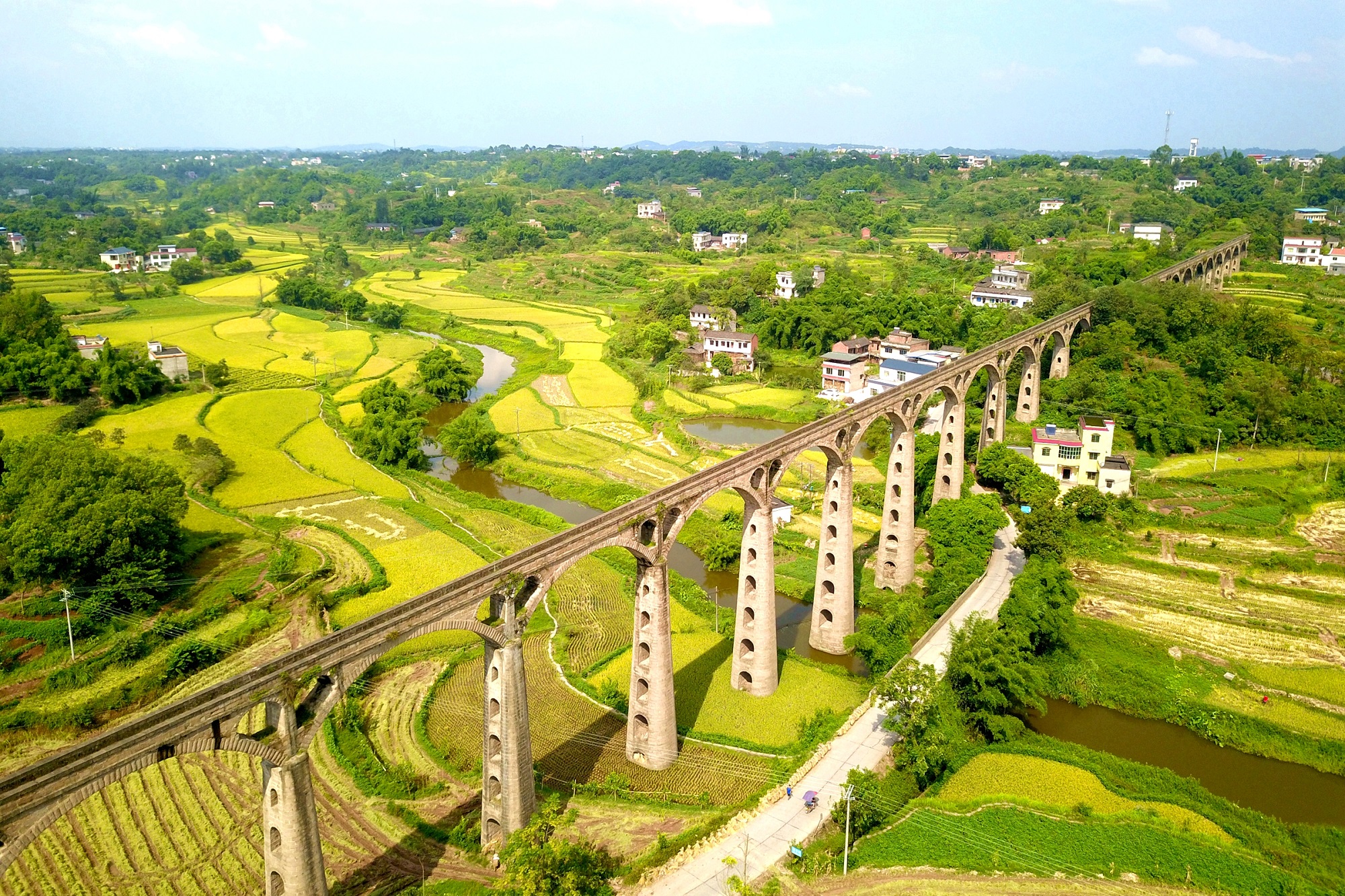
Luzhou Luxian Yuantongsi.
This transportation guide should help you plan your journey to Luzhou Luxian Yuantongsi, ensuring a smooth and enjoyable experience as you explore this significant cultural and historical site.
Local Cuisine and Accommodation
When visiting Luzhou Luxian Yuantongsi, you’ll find a delightful blend of local cuisine and comfortable accommodations that enhance your travel experience. Here’s a guide to some of the best dining and lodging options available in the area.
Culinary Delights
Luzhou is known for its rich culinary heritage, and Luxian is no exception. Here are some must-try restaurants that showcase the flavors of the region:
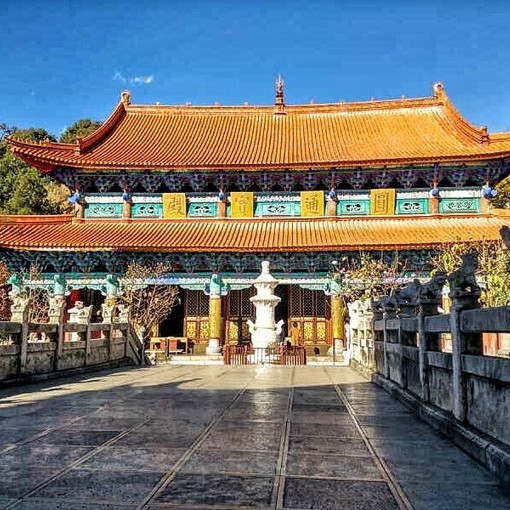
Luzhou Luxian Yuantongsi.
-
Chongqing Liuzhangmen Hot Pot: This popular spot serves a variety of fresh ingredients for hot pot lovers. The spicy broth is a highlight, perfect for those who enjoy bold flavors. Pair it with local beer for an authentic experience.
-
Yahua Restaurant: Known for its Sichuan-style dishes, Yahua offers a diverse menu featuring everything from Mapo Tofu to spicy fish. The warm ambiance makes it a great place for families and friends.
-
Jianhua Fish Restaurant: For seafood enthusiasts, Jianhua is a top choice. Enjoy fresh fish dishes cooked to perfection. Their signature sweet and sour fish is a must-try.
-
Dinghao Restaurant: This local eatery specializes in traditional Luzhou cuisine, including delicacies like Luzhou tofu pudding and various meat skewers. The casual setting is ideal for a quick and satisfying meal.
-
Secret Recipe Duck Neck: A unique local snack, this dish is seasoned with a blend of spices, making it a tasty treat. It’s perfect for those looking to try something new and different.
Comfortable Stays
Finding the right accommodation can greatly enhance your travel experience. Here are some recommended hotels that offer comfort and convenience:
-
Luzhou Intercontinental Hotel: This upscale hotel provides luxurious rooms with stunning views of the city. Amenities include a spa, fitness center, and multiple dining options that cater to international tastes.
-
Tian Zhan Hot Springs Resort: Perfect for relaxation, this resort features natural hot springs and comfortable rooms. Guests can enjoy spa services and a beautiful garden area, making it an ideal getaway after a day of exploring.
-
Luzhou Honghu Hotel: Located in a serene area, this hotel is known for its friendly service and comfortable accommodations. With easy access to public transport, it’s a convenient base for exploring local attractions.
-
Mingdu Hotel: A more budget-friendly option, Mingdu Hotel offers clean and cozy rooms. It’s well-reviewed for its friendly staff and proximity to restaurants and shops.
-
Yulong Lake Scenic Area Hotel: This hotel not only offers comfortable lodging but also breathtaking views of Yulong Lake. It’s an excellent choice for nature lovers wanting to immerse themselves in the beautiful surroundings.
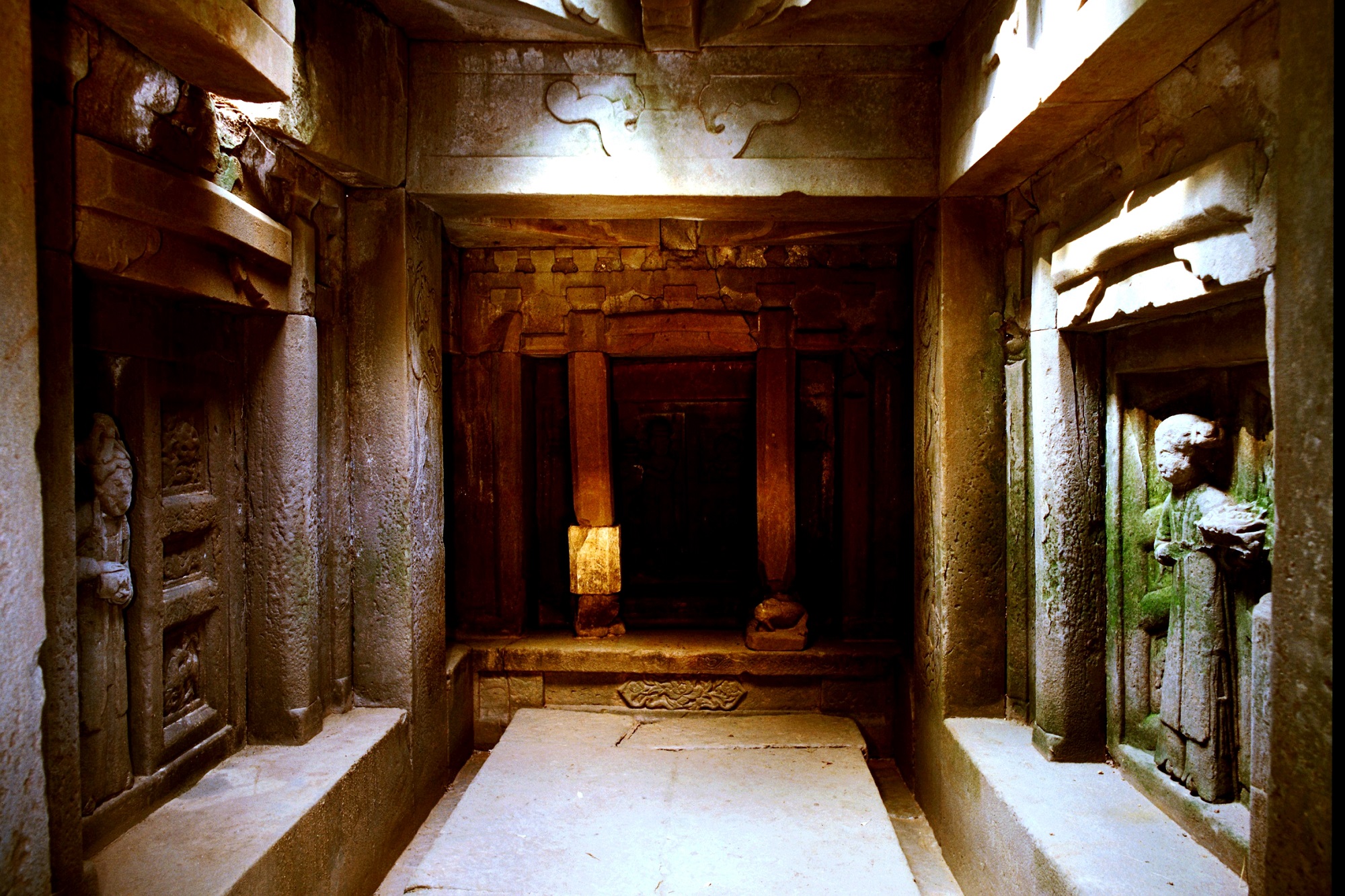
Luzhou Luxian Yuantongsi.
Whether you’re indulging in the local flavors or enjoying a restful night, Luxian offers a variety of options to make your stay memorable.
Frequently Asked Questions
Frequently Asked Questions about Luzhou Luxian Yuantongsi (泸县圆通寺)
1. What is Yuantongsi?
Yuantongsi, or the Round Trip Temple, is a historically significant Buddhist temple located in Luzhou’s Luxian County, Sichuan Province, China. Established in 1506 during the Ming Dynasty, it is known for its stunning ancient architecture and rich cultural heritage, making it a popular destination for both tourists and devotees.
2. How do I get to Yuantongsi?
The temple is approximately 2 kilometers from Yushi Township in Luxian County. You can reach it by car, taxi, or public transportation. For those driving, the scenic route offers beautiful views of the surrounding landscapes.
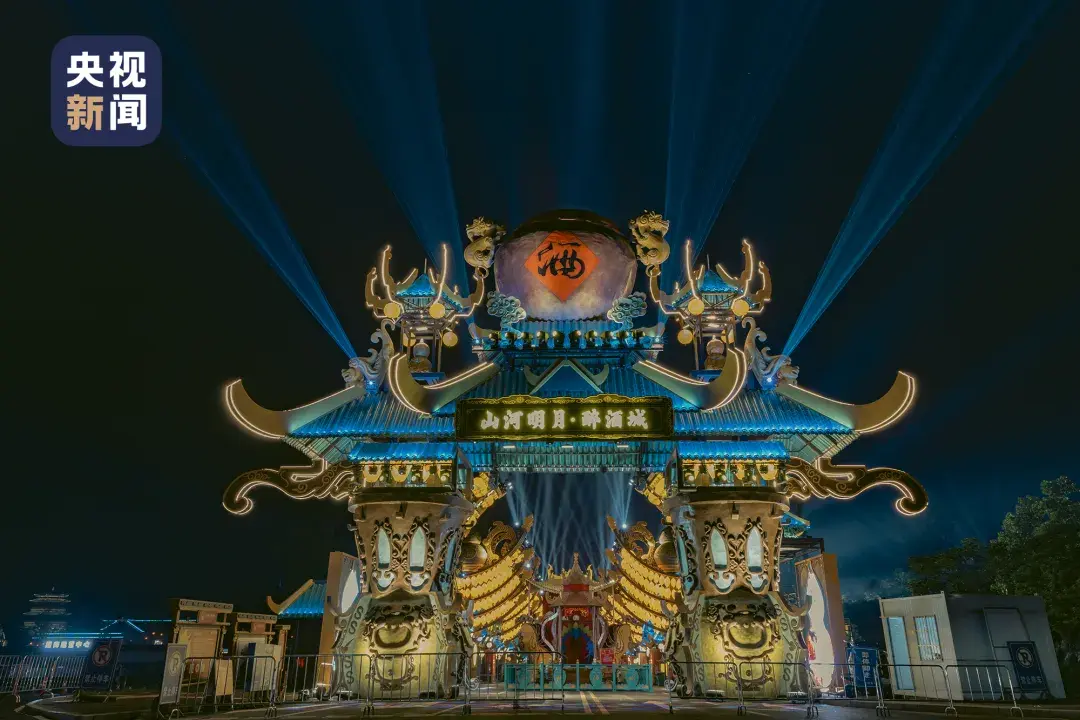
Luzhou Luxian Yuantongsi.
3. What are the opening hours and admission fees?
Yuantongsi is generally open from 9:00 AM to 5:00 PM. Admission is typically free, but it’s advisable to check local resources for any updates or special events that may require fees.
4. What should I wear when visiting the temple?
Visitors are encouraged to dress modestly and comfortably, respecting the sanctity of the temple. It’s advisable to wear comfortable shoes for walking, as the terrain can be uneven.
5. Are there any facilities for visitors?
Yes, Yuantongsi has basic visitor facilities, including rest areas and some informational signage. However, amenities like restaurants or shops may be limited, so consider bringing snacks and water.
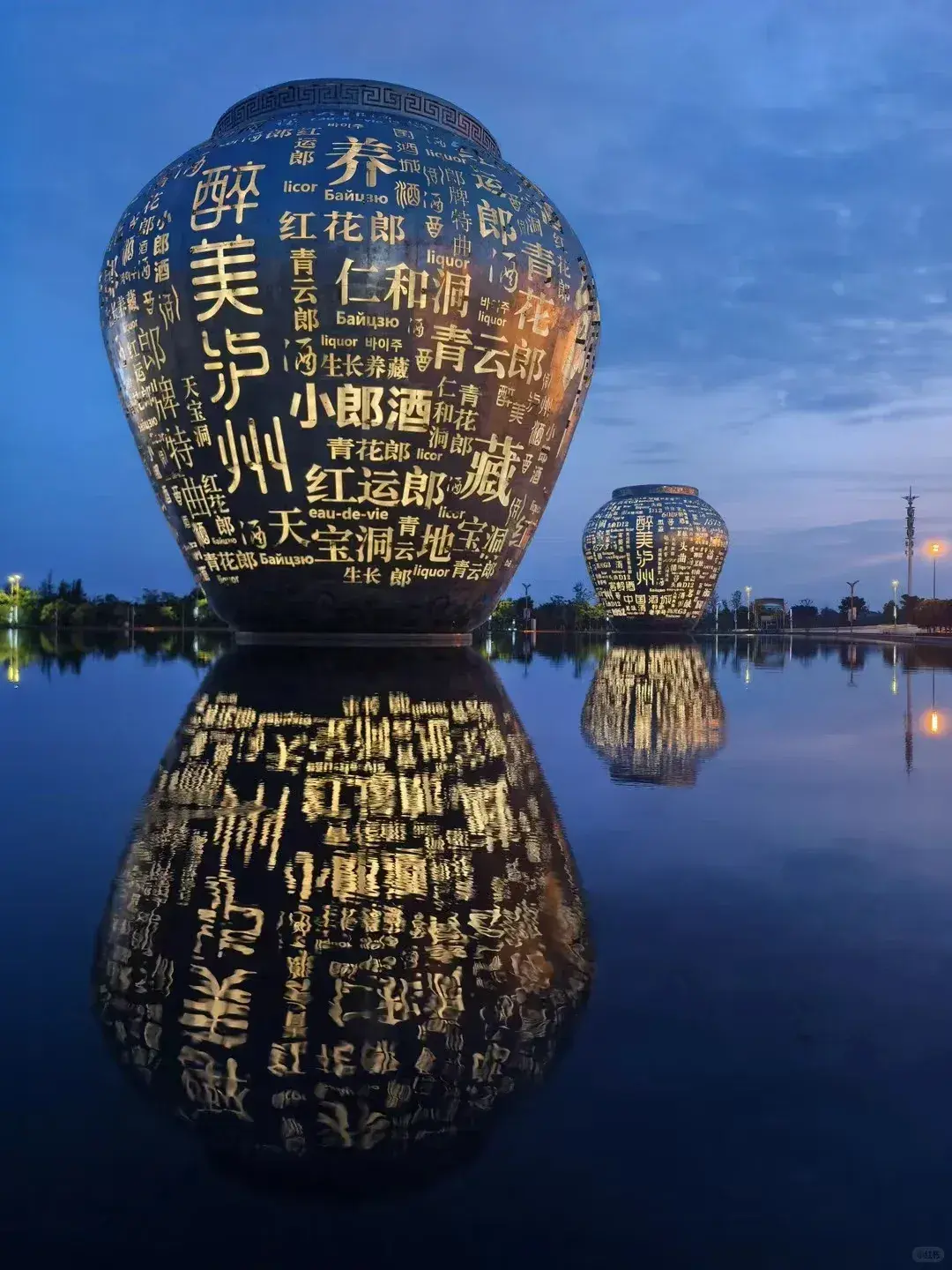
Luzhou Luxian Yuantongsi.
6. Is Yuantongsi suitable for families with children?
Absolutely! The serene environment and open spaces make it a great place for families to explore. Just be mindful of the temple’s quiet atmosphere and teach children about respecting religious sites.
7. Can I take photographs inside the temple?
Photography is generally allowed, but it’s crucial to be respectful. Avoid using flash and refrain from taking pictures of worshippers during their prayers. Always check for any specific guidelines posted at the site.
8. What other attractions are nearby?
After visiting Yuantongsi, consider exploring other nearby attractions like the Yuchan Mountain Scenic Area and the historic Longnao Bridge. Both sites offer unique experiences and beautiful views, enhancing your trip to Luxian County.
Final Thoughts on Your Trip
Luzhou Luxian Yuantongsi, or the Yuantong Temple, is more than just a historical site; it is a serene sanctuary that invites visitors to explore the depths of Chinese culture and spirituality. Nestled in the picturesque hills of Luzhou, the temple boasts exquisite Ming and Qing dynasty architecture, stunning rock carvings, and a rich tapestry of Buddhist heritage that dates back to the Tang dynasty.
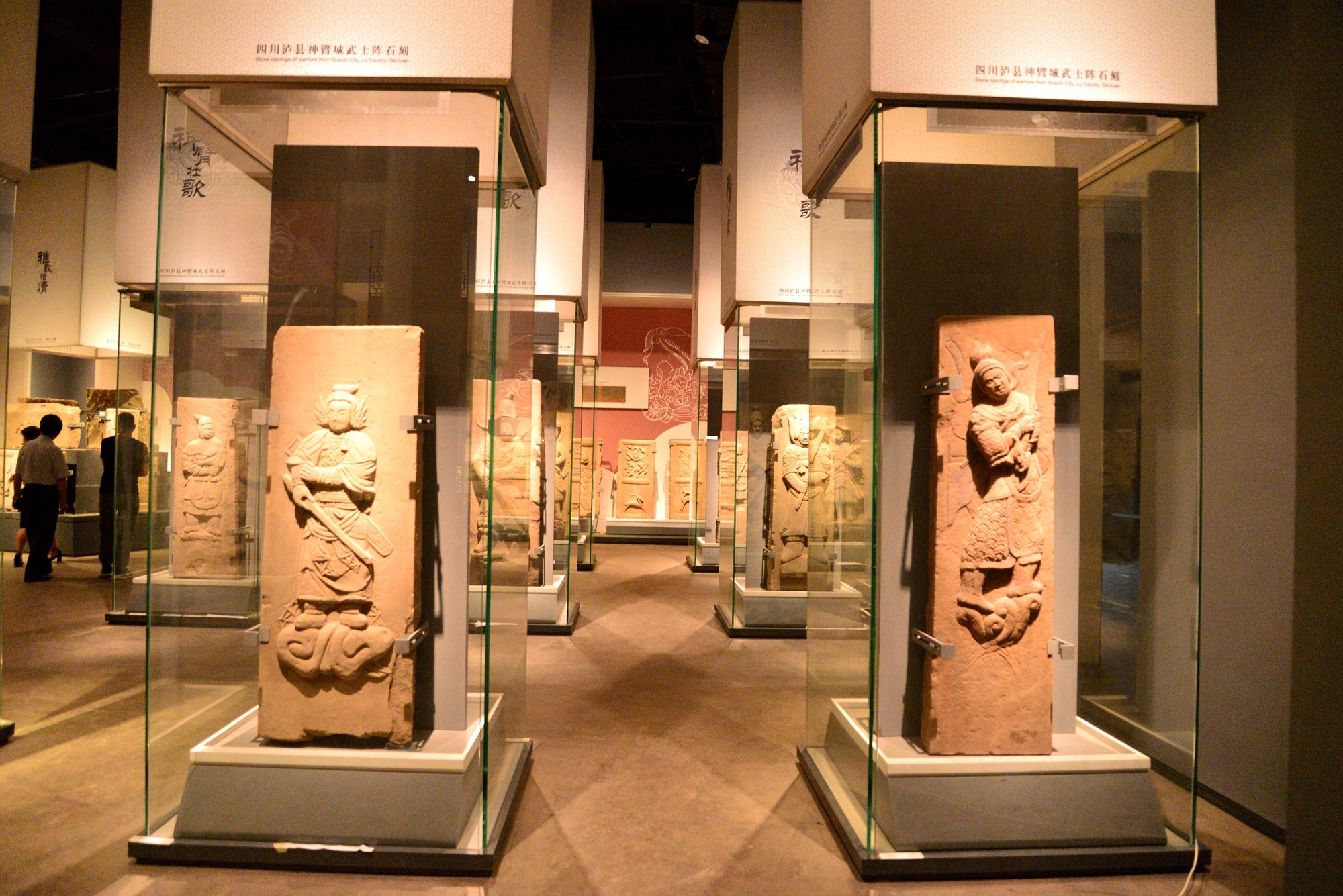
Luzhou Luxian Yuantongsi.
Whether you’re drawn by the allure of ancient artistry, the tranquility of its natural surroundings, or the spiritual journey it offers, Yuantongsi provides a unique experience for all. The tales echoed in its stones and the serene paths winding through its gardens offer a momentary escape from the hustle of modern life.
As you contemplate the beauty and history that envelops this sacred site, let Yuantongsi inspire a deeper connection to the past and a renewed appreciation for the cultural treasures of China. Make it a part of your travel itinerary, and allow yourself to be captivated by the enchanting spirit of this hidden gem. Your visit to Yuantongsi will not only enrich your understanding of Chinese traditions but also leave you with lasting memories of peace and reflection.
